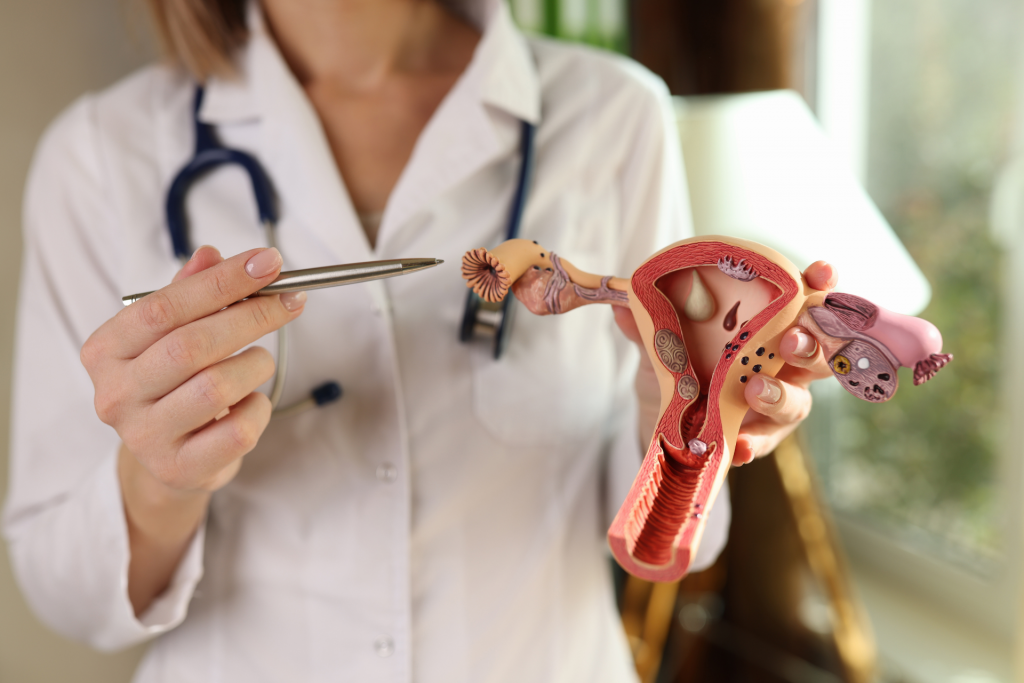
Understanding Fatigue in Perimenopause and Menopause: What You Need to Know
Understanding Perimenopause and Menopause
Perimenopause and menopause mark significant stages in a woman’s life, signaling the end of her reproductive years. Perimenopause, often starting eight to ten years before menopause, signifies the beginning of this transition. It’s a time when the ovaries gradually start to produce less estrogen and progesterone, leading to changes in the menstrual cycle. This phase is characterized by erratic or irregular menstrual cycles as the body begins its natural transition towards menopause. Menopause itself is a point in time, identified as 12 months after a woman’s last period, marking the end of menstrual cycles. Postmenopause follows this stage (Healthline, Mayo Clinic, Cleveland Clinic, National Institute on Aging, NHS).
The Importance of Understanding Fatigue During These Phases
Understanding fatigue in the context of perimenopause and menopause is crucial due to its profound impact on women’s health. Nearly half of perimenopausal women experience significant fatigue, a symptom that can range from mild to severe. This fatigue is often due to the hormonal imbalances that occur during these stages, specifically the fluctuations in estrogen, progesterone, thyroid, and adrenal gland hormones. These hormonal changes directly affect the body’s energy regulation, often leading to feelings of exhaustion. In addition to hormonal imbalances, factors such as night sweats and sleep disturbances also contribute to fatigue, further impacting the quality of life. Recognizing and addressing fatigue is vital as it encompasses not just physical tiredness, but also emotional and mental exhaustion, significantly affecting daily activities and overall well-being.
Section 1: What is Perimenopause and Menopause?
Definitions: Clarifying Perimenopause and Menopause
Perimenopause and menopause are key phases in a woman’s life that signify the end of her reproductive years. Perimenopause, often referred to as the “menopausal transition,” is the period leading up to menopause. It’s a phase when the body starts to make less estrogen and progesterone, causing changes in menstrual cycles. This stage can begin eight to ten years before menopause and is marked by erratic or irregular menstrual periods. Menopause is defined as the point in time that occurs 12 months after a woman’s last menstrual period. It marks the end of menstrual cycles and is a clear indication that the ovaries have ceased releasing eggs. Following menopause is the postmenopausal phase, a time after the menstrual cycles have permanently ceased.
Biological Changes: Hormonal Shifts During These Stages
During perimenopause, the ovaries gradually produce less estrogen and progesterone, leading to changes in menstrual patterns and the onset of various symptoms. This reduction in hormone production is a natural and gradual process. As women transition into menopause, these hormonal fluctuations can become more pronounced, affecting not just the menstrual cycle but also various other bodily functions. The decline in estrogen levels is particularly significant, as this hormone plays a crucial role in various aspects of health, including bone density, heart health, and skin elasticity.
Timeline: General Timeline for Perimenopause and Menopause
The timeline for perimenopause and menopause can vary significantly among women. Typically, perimenopause begins in a woman’s 40s but can start as early as the mid-30s in some cases. The average age for reaching menopause is around 51 years, but it can occur anytime between the ages of 45 and 55. It’s important to note that this timeline can be influenced by various factors, including genetics, lifestyle, and overall health. Understanding that these stages can vary greatly helps in recognizing and managing the symptoms effectively.
Section 2: Fatigue in Perimenopause and Menopause
Symptom Description: The Manifestation of Fatigue
During perimenopause and menopause, many women experience extreme fatigue, a state of feeling utterly exhausted despite adequate rest. This fatigue often manifests as a deep tiredness and can be accompanied by various symptoms such as irritability, anxiety, difficulty concentrating, frequent hunger, sleep disturbances, racing thoughts, lack of enthusiasm, and brain fog. These symptoms are indicative of the significant impact that hormonal fluctuations have on the body’s energy levels, mood, and sleep quality during these stages.
Commonality: The Prevalence of Fatigue Among Women
Fatigue is a common symptom across all phases of menopause. Almost half (46%) of perimenopausal women report experiencing extreme tiredness, highlighting how widespread this issue is. The prevalence of fatigue during these stages cannot be understated, as it significantly affects the daily lives and overall well-being of many women. Understanding the commonality of this symptom is crucial for proper recognition and management.
Causes: Exploring the Various Factors of Fatigue
The onset and intensity of fatigue during perimenopause and menopause can be attributed to several factors. Primarily, hormonal changes play a significant role. Fluctuations in estrogen, progesterone, and other hormones directly affect energy levels and sleep quality. Additionally, lifestyle factors and genetics also contribute to the experience of fatigue. Night sweats, a common symptom associated with these hormonal changes, often interrupt sleep, exacerbating the feeling of tiredness. Eating habits, particularly a lower protein intake, can also influence energy levels during this time.
Section 3: Impact on Daily Life
Physical Impact: Fatigue and Its Effects on Health and Activities
Fatigue during menopause can significantly affect physical health and daily activities. It occurs due to changing hormone levels, night sweats, and other sleep disruptions, leading to a state of being physically and mentally drained. This level of exhaustion can impede the ability to perform everyday tasks and maintain an active lifestyle. Fatigue in menopausal women has been extensively reported in research, such as studies published in the Journal of Psychosomatic Obstetrics & Gynecology, which identified fatigue as a frequent symptom during this life stage. However, it’s important to note that fatigue can also indicate other medical conditions like anemia, coronary artery disease, or thyroid issues, necessitating a discussion with a healthcare provider for accurate diagnosis and management.
Emotional and Mental Impact: Psychological Effects of Chronic Fatigue
The psychological and emotional effects of chronic fatigue during menopause are profound. Many women experience low mood, anxiety, depression, and stress, often intertwined with the physical symptoms of menopause like insomnia and loss of libido. Additionally, ‘menopausal brain fog’ is a common psychological symptom, encompassing difficulties with concentration and memory. These cognitive changes can profoundly impact personal relationships, social life, and professional performance, making daily mental tasks more challenging. The intertwining of physical and psychological symptoms underscores the complexity of menopause-related fatigue and its broad impact on mental health.
Social Aspect: Fatigue’s Influence on Relationships and Work
Fatigue during menopause can also have a significant social impact, affecting interactions, relationships, and professional life. The combination of physical symptoms, brain fog, and mood changes can strain personal and work relationships. In the workplace, these symptoms can be particularly challenging, with up to 10% of women considering leaving their jobs due to the severity of their menopausal symptoms. This indicates the substantial influence menopause, including fatigue, has on professional life and career decisions for many women.
Section 4: Managing and Treating Fatigue
Medical Interventions
- Hormone Therapy: Fluctuations in hormones like estrogen, progesterone, thyroid hormones, and adrenal hormones during menopause can cause fatigue. Hormone therapy may help in balancing these hormones, thus alleviating fatigue.
- Consultation with a Menopause Practitioner: A practitioner, especially one certified by the North American Menopause Society (NAMS), can offer guidance on hormone replacement therapy and non-hormonal treatments to manage menopause fatigue.
Lifestyle Changes
- Regular Physical Activity: Engaging in moderate or high-intensity exercise can increase energy levels and also help with mood swings, weight gain, and hot flashes.
- Improving Sleep Environment: Wearing light, breathable nightwear, using moisture-wicking bedding, and keeping a cool bedroom can help manage night sweats and improve sleep quality.
- Napping: A short power nap of 20-30 minutes can restore energy.
- Routine and Sleep Hygiene: Maintaining a consistent sleep routine, winding down before bed, and creating a sleep-conducive environment are crucial for good sleep hygiene.
Alternative Therapies
Supplements and Diet
- Vitamin and Mineral Supplements: Vitamins B, D, and E, along with minerals like magnesium and iron, can help in managing fatigue. It’s important to check for deficiencies and consult with a healthcare provider before starting supplements.
- Balanced Diet: A diet rich in fruits, vegetables, whole grains, lean protein, and healthy fats can help in maintaining energy levels. Foods high in phytoestrogens, like soy products, may also be beneficial.
Alternative Therapies
- Mind-Body Practices: Yoga, tai chi, and meditation can help in reducing stress and improving sleep, which can alleviate fatigue.
- Acupuncture: This traditional Chinese medicine technique may help in balancing energy flow in the body and reducing menopause symptoms.
- Herbal Remedies: Herbs like black cohosh, evening primrose oil, and ginseng are sometimes used for managing menopause symptoms, but their efficacy and safety need to be discussed with a healthcare provider.
Treatment of Depression
Depression can be both a cause and a consequence of menopausal fatigue. It’s essential to recognize and treat depression effectively.
- Counseling and Psychotherapy: Talking therapies like cognitive-behavioral therapy (CBT) can be effective in managing depression.
- Antidepressants: In some cases, antidepressant medication may be necessary. Selective serotonin reuptake inhibitors (SSRIs) are commonly prescribed for depression during perimenopause and menopause to decrease hot flashes as well as depression.
- Lifestyle Modifications: Regular exercise, a healthy diet, and good sleep hygiene can also support mental health.
Integrating Treatments
A comprehensive approach, combining medical treatments, lifestyle adjustments, dietary considerations, and psychological support, is often most effective. It’s crucial to consult healthcare professionals for personalized advice and to ensure that any supplements or alternative therapies used are safe and appropriate for your specific health needs.
Section 5: When to Seek Help
Knowing when to seek professional medical advice during perimenopause and menopause is crucial for maintaining your health and well-being. Symptoms of menopause can start even 10 years prior to the end of your periods, so you can have symptoms treated before the onset of menopause. Here are some signs that indicate it’s time to consult a healthcare professional:
While the information provided serves as a general guide, individual experiences may vary. Always consult with a healthcare professional for personalized advice.
- Persistent Fatigue:
- If fatigue persists despite lifestyle changes or interferes significantly with daily activities.
- Severe Mood Changes:
- Intense mood swings, persistent anxiety, or feelings of depression.
- Sleep Disturbances:
- Insomnia or other sleep problems that interfere with your daily life or impacting your ability to work and perform daily tasks.
- Irregular Bleeding:
- Unexplained changes in menstrual bleeding patterns or postmenopausal bleeding.
- Severe Hot Flashes and Night Sweats:
- When these symptoms significantly impact quality of life or sleep.
- Bone Health Concerns:
- Rapid bone density loss or fractures may warrant medical attention.
- Vaginal Health Issues:
- Persistent vaginal dryness, discomfort, or pain during intercourse.
- Lack of Libido:
- Significant and persistent loss of interest in sexual activity.
- Cognitive Changes:
- Noticeable changes in memory, concentration, or cognitive function.
- Weight gain:
- Increased weight gain, particularly abdominal weight gain.
Professional Resources:
For personalized care and guidance on menopausal health, consider consulting healthcare professionals who specialize in this field. The North American Menopause Society (NAMS) is a reputable resource providing information and links to certified healthcare providers.
- Women’s Preventive Care Clinic: If you live in Florida, Washington State or California, schedule appointment here for 1:1 perimenopause and menopause care with Luciana Svilpa, Board Certified Women’s Health NP.
- NAMS Certified Menopause Practitioners:
- Find a NAMS Certified Menopause Practitioner
- Locate healthcare professionals specializing in menopausal health through the NAMS directory. North American Menopause Society (NAMS): NAMS offers a directory of healthcare providers who specialize in menopause management. This includes physicians and other healthcare providers in the United States and Canada. Those who have passed a competency examination and have earned the credential of NAMS Certified Menopause Practitioner are indicated in the search results. This credential is a mark of expertise in the care of menopausal and perimenopausal women.
- Find a NAMS Certified Menopause Practitioner
- Obstetricians/Gynecologists (OB/GYN):
- OB/GYNs with expertise in menopausal care can offer comprehensive guidance.
- Endocrinologists:
- Specialists in hormonal health who can provide in-depth assessment and management.
- Primary Care Physicians:
- General practitioners can serve as a valuable first point of contact for menopausal concerns.
Additional Resources:
For evidence-based information, consider referring to the following peer-reviewed sources:
- NAMS Menopause Practice:
- NAMS Practice & Position Papers
- Access authoritative guidelines and recommendations from NAMS.
- NAMS Practice & Position Papers
- Mayo Clinic – Menopause:
- Mayo Clinic – Menopause
- Reliable information from Mayo Clinic, a reputable medical institution.
- Mayo Clinic – Menopause
- Journal of the American Medical Association (JAMA):
- JAMA Menopause and Women’s Health
- Explore peer-reviewed articles on menopause-related topics.
- JAMA Menopause and Women’s Health
Remember, seeking professional help promptly can enhance the management of menopausal symptoms and ensure optimal health during this transitional phase. Menopause is a natural phase of life, but experiencing symptoms that impact your daily life is not something you should have to endure without support. Seeking help from a qualified healthcare provider, especially one with expertise in menopause management, can greatly improve your quality of life during this transition.
Additional Resources
Further Reading
For more information on menopause, consider exploring the following books, articles, and websites:
- Books:
- “Menopause: 50 Things You Need to Know: What to Expect During the Three Stages of Menopause” – A comprehensive guide written by a board-certified ob/gyn and integrative physician.
- “The Menopause Manifesto” by Dr. Jen Gunter – A modern bestseller that aims to bust myths and offer an empowering guide to menopause.
- Other recommended books include “The Galveston Diet” by Mary Claire Haver MD and “The Menopause Reset” by Dr. Mindy Pelz, which can be found on lists of best sellers in menopause.
- Articles and Websites:
- StatPearls: An educational resource offering a comprehensive overview of menopause, authored by Kimberly Peacock and Kari M. Ketvertis.
- Good Housekeeping: Provides various articles on menopause, including personal experiences, best books, and guides on managing symptoms.
Support Groups
Engaging with support groups can provide community, shared experiences, and valuable information:
- Inspire – Red Hot Mamas: A menopause support group and discussion community where members can engage in various topics related to the menopause experience and its management. Check out the Inspire community.
- Hormone Health Network: Offers resources for menopause support, including Red Hot Mamas and other educational and support programs. Visit the Hormone Health Network for more details.
These resources offer a wealth of information and support, helping to navigate the complexities of menopause with greater ease and understanding.



